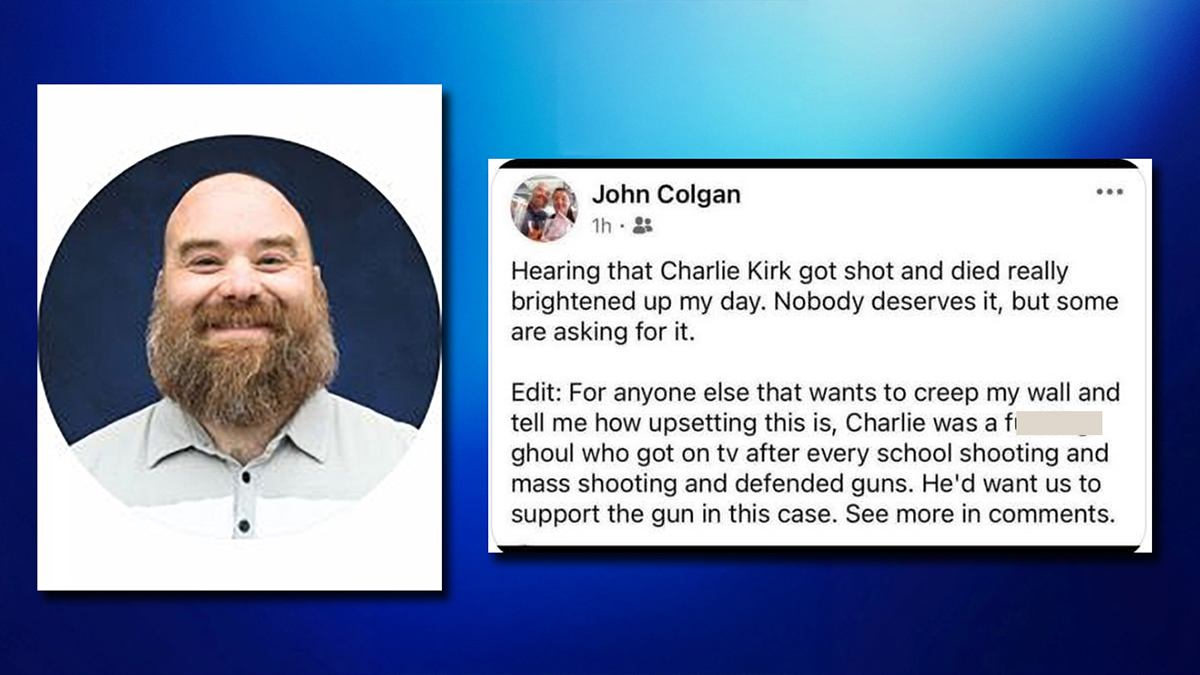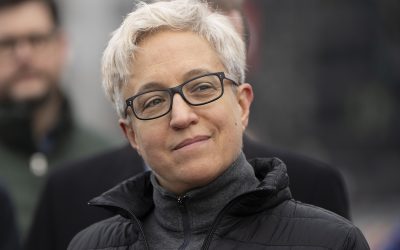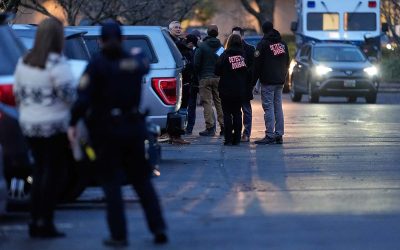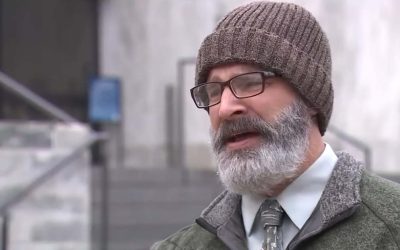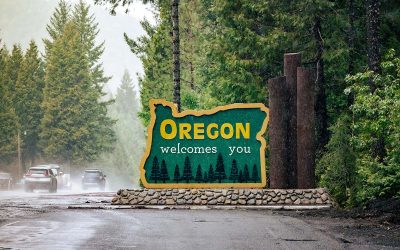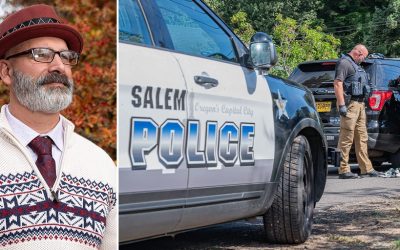The assassination of conservative activist Charlie Kirk during a campus debate in Utah has shocked the nation and deepened an already chilling divide in American discourse. Authorities say 22-year-old Tyler Robinson of Southern Utah was arrested after confessing to his father, who alerted law enforcement.
As the investigation unfolds, the fallout has spread far beyond Utah, reaching Oregon, where Cornelius City Councilor John Colgan, also a science teacher at Neil Armstrong Middle School in Forest Grove, is under fire for Facebook posts celebrating Kirk’s death. “Hearing that Charlie Kirk got shot and died really brightened up my day,” Colgan wrote. In an apparent follow-up post responding to backlash, he added: “Charlie was a f****** ghoul who got on TV after every school shooting and mass shooting and defended guns. He’d want us to support the gun in this case.”
Members hang a ‘Pray 4 The Kirks’ sign outside their fraternity at Ole Miss University: pic.twitter.com/L27021B1l6
— Liberacrat™️ (@Liberacrat) September 11, 2025
The posts have since been deleted, but screenshots were widely circulated. Colgan, first elected to the Cornelius City Council in 2019 and re-elected in 2023, with a term running through December 2026, has not responded to requests for comment.
The Forest Grove School District quickly distanced itself. In a statement, officials said: “The District does not condone violence nor the celebration of violence. Our top priority is to protect the right of students to a safe and welcoming learning environment, and our policies prohibit the sharing or teaching of personal political views in our school classrooms. We remain committed to the wellbeing and education of our students.”
Do you love Oregon?
Sign up for monthly emails full of local travel inspiration and fun trip ideas. In each newsletter we'll share upcoming events, new things to do, hot dining spots and great travel ideas.
District policy allows employees to engage in political activity on personal time and personal devices, but requires staff to treat colleagues, students, and the public with respect when posting on social media to prevent disruption in schools.
The City of Cornelius also issued a statement: “These statements reflect the views of the individual and do not represent the City or the City Council as a whole. As a city, we are committed to fostering an environment of respect, inclusion, and constructive dialogue. Our goal is to serve our community by providing a safe and welcoming space where all individuals are treated with dignity. In closing, we share a message recently expressed by our Mayor during a City Council meeting: ‘Of all the things you can be, be kind.’”
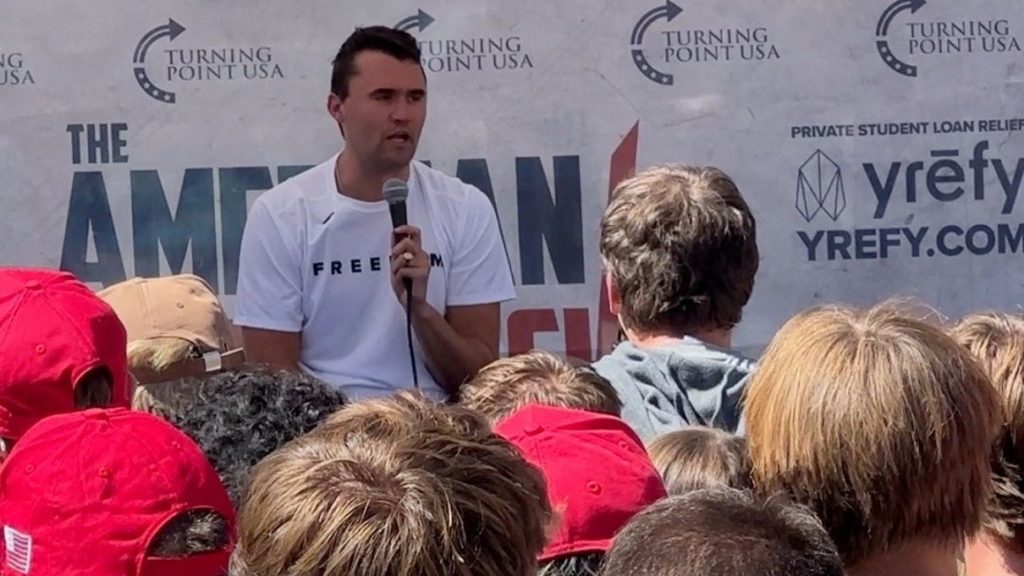
Reactions among residents reflect the larger national divide. Some argue Colgan has a right to express personal views on a private account, while others believe public officials and teachers carry higher responsibilities. In comments to KATU, Forest Grove resident Kim Frost said, “When you are representing an institution, there’s gotta be guidelines.” Another resident, Joanna Frost, told KATU, “I’m for freedom of speech, but I think that when you’re in a position of power, you have to watch what you say more.”
The fallout from Charlie Kirk’s assassination has gone beyond official statements and local reactions, spilling into the national spotlight as social media campaigns target those who have publicly celebrated his death. Ryan Fournier, a conservative activist and public figure, posted on Facebook:
“I’m having too much fun getting people fired from their jobs over their posts praising Charlie’s assassination. I won’t stand for that. 8 down. Many more to go. Email us tips at [email protected]!”
Fournier’s post underscores a growing trend. Individuals who cheer Kirk’s death online are quickly being identified, exposed, and in some cases, losing their jobs. The Oregon middle school teacher and city councilor, John Colgan, is one of several now facing national scrutiny as screenshots of his comments circulate widely.
This moment illustrates how deeply the debate has spread, from local classrooms and city councils in Oregon to coordinated online campaigns with nationwide reach, further inflaming an already divided country.
Kirk, founder of Turning Point USA, was shot once in the neck while speaking at Utah Valley University on Wednesday. His death was immediately politicized, not only by those mourning him but also by those openly celebrating it.
In an era where Americans can barely agree on basic facts, the sight of public servants and educators cheering the assassination of a political figure is both shocking and telling. It underscores how deeply the nation has fractured.
What was once unthinkable—celebrating the violent death of a political opponent—is becoming disturbingly normalized in some circles. This is not about whether one agreed or disagreed with Kirk’s ideology; it is about whether society still shares the basic belief that political violence is wrong.
This moment highlights something larger than one city councilor or one activist. It is a reflection of where we are as a country. When violence is met with applause rather than mourning, when teachers and leaders express joy at an assassination, it reveals a level of division that goes beyond politics. It strikes at the core of our humanity.
Political disagreement is inevitable in a free society. Political violence should never be. Yet increasingly, the lines between dissent and dehumanization, between debate and destruction, are being blurred.
The assassination of Charlie Kirk and the responses to it, both in grief and in celebration, serve as a sobering reminder that the health of our democracy is tied not only to institutions but to the moral compass of everyday citizens. And when those entrusted to educate and lead are willing to publicly cheer the death of someone they disagreed with, it forces us all to ask: where is the line, and what happens if we cross it?

